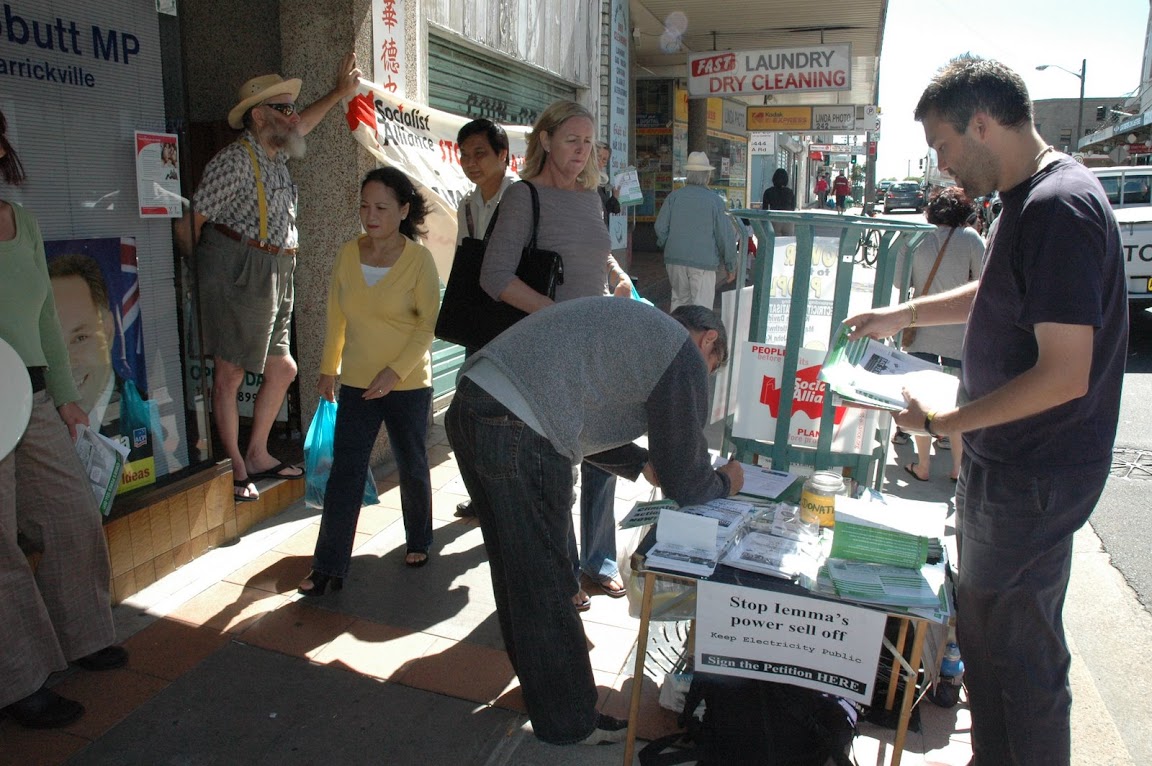 by Dave Riley
by Dave RileyMarcus Strom has published a review of the recent Solidarity Conference wherein three of the four International Socialist Tendency groups in Australia have merged (or re-merged after a time apart)
I'm in no position to judge the strength of Strom's report but one snippet jumped out at me:
The comrades voted for the organisation’s monthly publication to have a magazine format, as opposed to that of a newspaper. A debate around whether or not to sell it on stalls was revealing, in that it showed that the new organisation has very little, if any, membership in working class suburbs - stalls were discussed as if they will only occur on campuses and the more gentrified urban areas. It also revealed a liquidationist tendency that was not comfortable selling the publication at all, while another section favoured ploughing on with the same approach to paper sales and recruiting mainly students.
The suburban riddle
Indeed this is the biggest riddle in Australian left politics: how to reach out to and colonize the suburbs.
In a place like Brisbane -- which was until the 1970s an "over grown country town" (as the standard description would have it) -- the urban sprawl that has spread like treacle along Moreton Bay and the Brisbane River Valley is very much mall and vehicular driven. The cozy inter-war suburb with its ribbon line of retail shops along main street is rare indeed now that mega malls have gutted suburban standalone commerce and the corner shop.
So finding a place to run a literature stall in the suburbs is a frustrating exercise because so much 'public space' is privately corporate 'public space'.
I was thinking about this in the context of finding ways to merge political advocacy and organising with local communities when I had to come back to the revealing issues of stalls.
I've done a bit of local community stuff both cultural and political as well as hobbyist, recreational and the like -- as one does in the realm of one's residence under sentence of offspring.But the actual hands on business of building and organising party like structures or even campaign structures shrinks exponentially the further you move away from the CBD.
This tendency is confused by the fact that the left has relied on the inner urban progressive gentified ghettoes for its campaign sustenance.
There's almost a cultural divide where this left cannot deal with the sterility and seeming lack of political sophistication that is pandemic across dormitory suburban Australia.
Power stall -ing
I have wondered so often about this because organising the suburbs seems an almost impossible task. You look at the Labor Party with is crumbling branch structure in the electorates and wonder how do you start to replicate that?
Well you can't. There is history, tradition and electoral success making it feasible to grow branches like that over a 100 plus year history. If you have ever been an ALP member and attended your local branch GM -- you'd also know that the ALP itself does not try to organise the suburbs, it only plans for the next polling day.
So the ALP existence in the burbs while colonial is shallow and is only as strong as its local councilor dash MP.
To some degree the "community centre" network functions as organising centres for occasional outbursts of suburban protest. Most of these I've worked with can boast a gaggle of "community centre" groupies who plug into local volunteer networks sponsored by in house social workers.
But community centres are hostaged to funding protocols and 'local consensus' such that you are as likely to be going head to head with a local Liberal Party snob as anyone else when you mingle there with political intent. The environment also tends to suit to the perspectives of the NGO and small 'l' liberal demographic-- not your "working class" suburbanite that I guess Marcus was alluding to.
Enter the campaign stall....!!!!
If (and it is the most difficult of missions if you choose to accept it)you can find a place to locate a regular campaign stall then you have an anchor and a beckon located in diffuse suburban space that begins to tick a few boxes.
I'm going to call that power stall-ing.
Distracted by propaganda
Most people don't get this at all. Most people cannot comprehend why you would want to stand on street corners or at community market days selling newspapers and their kin when, for instance, you can get a larger readership on the web any hour of the day or night without such strenuous effort.
It does seem a touch confusing. And in many ways the new media platforms have undermined the role of printed (hard copy) literature as an analysing and reportage tool.
Or so it would seem...
While the mainstream and bourgeois press long ago abandoned the street -- the once a upon a time paper boy is probably an aging grandpa by now -- the logic and political necessity of street presence -- of the street stall -- is still as potent as it ever was.
The stall is a mobile organising and networking centre.It distributes propaganda of course -- but it also hooks up with anyone going by who is in the least bit interested in the sort of politics you may want to promote or the organising you seek to facilitate. It's a mobile and regularly scheduled campaign and politics hub.
It is not just about flogging literature. It's power stall-ing that offers an transmission belt to suburban Australia.
It's not the full story of course but it is the core to resolving the enigma because even if you moved ahead and gathered around you the like minded in activist mode the same challenge would still exist: how to organise in that community which bore you.
Either that or you get on your bike and play at being brother Mormon...*
